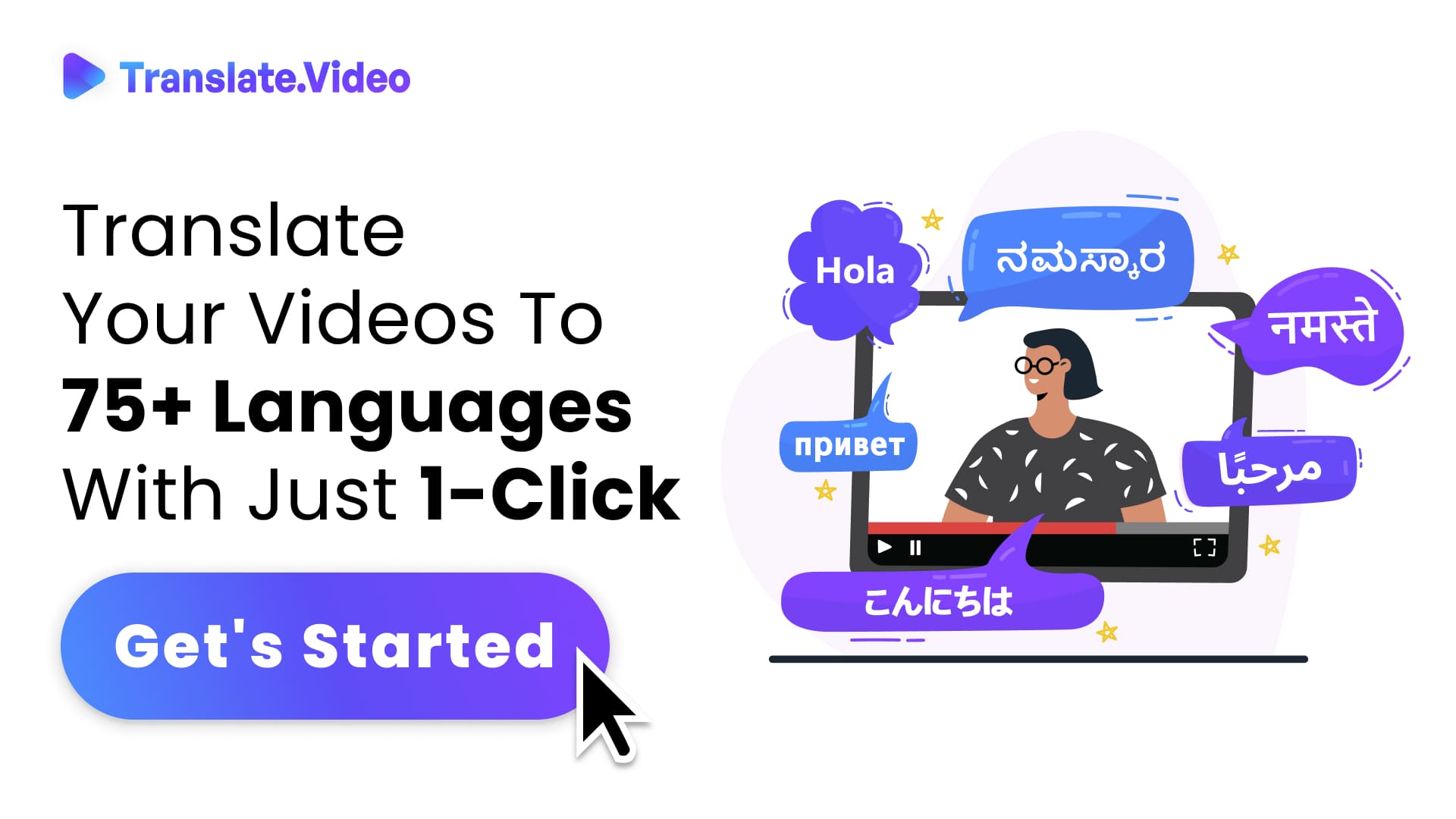Unraveling the Magic: A Deep Dive into Translating YouTube Comments
Bridging Digital Babel: The Comprehensive Guide to Translating YouTube Comments

Hey folks! Have you ever been deep down the YouTube rabbit hole, engrossed in a video, only to scroll down to the comments section and find messages in languages that might as well be ancient hieroglyphics? If you're nodding in agreement, you're not alone. Like me, countless others yearn for a Rosetta Stone of the digital age. Luckily, translating YouTube comments isn't as arcane as it sounds. Let's explore this fascinating realm together!
Introduction
YouTube, the behemoth of video content, boasts an impressive 2 billion logged-in monthly users. From K-pop to flamenco, tutorials in Thai to debates in Dutch, it's a true global platform. This, of course, leads to a Tower of Babel situation in the comments section.
When I first stumbled on a music video from a Ukrainian band, the melodies had me hooked. But the comments? They were an enigma. I had questions, opinions, and a burning desire to join the conversation. That's when I ventured into the art of translating YouTube comments.
The Age of Machine Translation
The 21st century ushered in an era of technological marvels. Among them stands machine translation, a silent workhorse that's more pervasive than you might think.
1. Built-In YouTube Translation
While YouTube doesn't natively translate comments, it does offer video title and description translations in some cases. It's a step, albeit a small one.
2. Browser-based Tools
Ever heard of Google Translate? Of course, you have! If you're using Chrome, translating a page (including comments) is just a right-click away. Neat, right?
Harnessing Extensions and Add-ons
For those of us who live and breathe YouTube, browser extensions can be lifesavers.
1. Google Translate Extension
This nifty Chrome extension allows you to highlight text (yes, including those baffling comments) and get an instant translation.
2. TransOver
Another gem for Chrome users. Hover over the text, and voila! The translation magically appears.
Mobile Madness: Translating on the Go
For those YouTube binges on your phone (guilty as charged!), apps are your best friends.
1. Google Translate App
Screenshot the comment, open the app, and upload the image. The translation will unfold before your eyes.
2. In-app Tools
Certain third-party YouTube apps might offer integrated translation features. A quick app store search could yield some surprising results.
The Human Touch
While machines are terrific, sometimes the human touch is irreplaceable, especially for nuanced content. Websites like "Translate Community" harness the power of humans to decipher tricky or culturally-rich comments.
The Pros, Cons, and Watch-outs
Pros:
- Stay in the Loop: Never feel left out of the global conversation.
- Learn and Grow: Picking up on colloquialisms and cultural references can be enlightening.
Cons:
- Lost in Translation: Machine translations aren't flawless. Misinterpretations can occur.
Watch-outs:
- Stay aware of idioms or cultural references. Direct translations might miss the mark.
A Personal Tale: Finding Unity in Diversity
I once chanced upon a Turkish travel vlog. The visuals were mesmerizing, but the real gold? The comments section. Thanks to translations, I joined discussions, learned about hidden locales, and even made a friend halfway across the world!
Conclusion: Embracing the Global Spirit of YouTube
The beauty of YouTube lies in its diversity. From every corner of our planet, voices rise, stories unfold, and opinions clash or align. Translating YouTube comments isn't just about understanding words; it's about embracing this global spirit. As we bridge linguistic barriers, we find that at the heart of it, we're all just avid YouTubers, seeking connection, one comment at a time.
FAQs
1. Why might I need to translate YouTube comments?
Given YouTube's global reach, comments can come from any corner of the world. Translating them helps in understanding diverse perspectives and joining global discussions.
2. Does YouTube offer a native tool for comment translation?
While YouTube provides translation for video titles and descriptions in certain instances, it does not natively translate comments. However, there are browser-based tools and extensions that can assist with this.
3. How reliable is machine translation for YouTube comments?
Machine translation, like Google Translate, offers quick results but may sometimes miss nuances, idioms, or cultural context. For more nuanced understanding, human translation might be preferred.
4. Are there any browser extensions you recommend for translating comments?
Certainly! The Google Translate Extension and TransOver for Chrome are handy tools that allow easy and instant translation of highlighted text or hovered-over comments.
5. How can I translate comments when using YouTube on my mobile device?
You can leverage the Google Translate app. Simply screenshot the comment, open the app, and upload the image for translation.
6. Can human translation help with YouTube comments?
Absolutely! For comments rich in cultural references or idioms, human translators, available on platforms like "Translate Community", can provide more accurate translations.
7. Are there any pitfalls to be aware of when translating comments?
Yes, machine translations can sometimes misinterpret the content, especially idioms or cultural references. It's always a good idea to cross-reference or seek human translation for complex comments.
8. I've seen some third-party YouTube apps offering in-app translation. Are these reliable?
While some third-party apps may offer integrated translation features, it's essential to review user feedback and ensure they're trustworthy before relying on them for accurate translations.
9. How does translating comments enhance my YouTube experience?
Translating comments allows you to engage in global conversations, learn from diverse perspectives, and even make connections with people from different cultural backgrounds.
10. Is it possible for a translated comment to be completely inaccurate?
While rare, there are instances where machine translations can get it wrong, especially with languages rich in idioms or when sentences are complex. Always approach translations with a pinch of skepticism and cross-check if in doubt.
Trending Tags
Trending Blogs
What are you waiting for?
Your Dubbing, Subtitles, Captions in one place
Signup free!
